Why are so many trans people leaving the UK?
After a huge rise in transphobic hate crimes in recent years, the UK has slipped down the rankings for LGBT+ equality. So is it any wonder members of the community don’t feel safe any more, writes Jane Fae

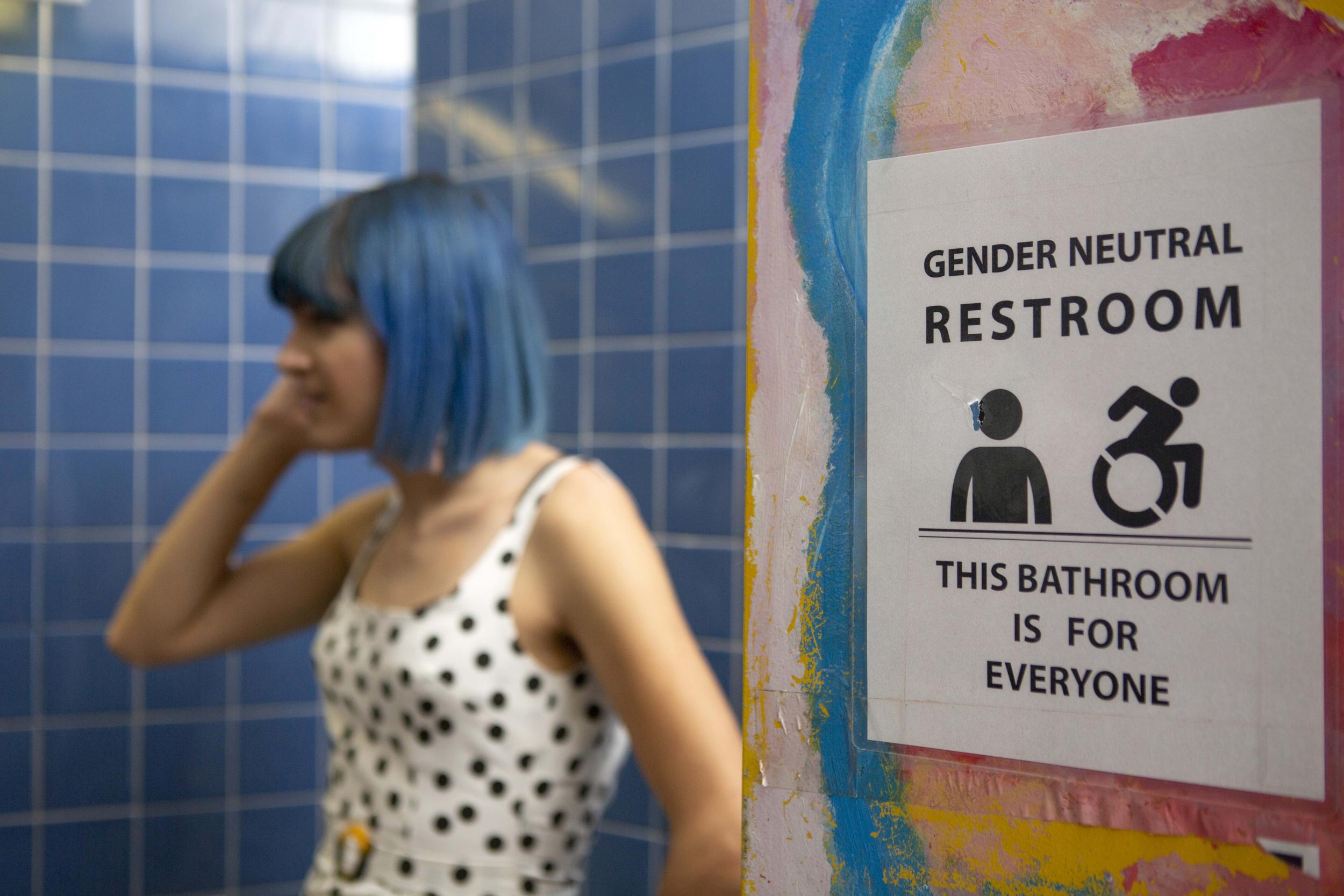
I lost a good friend last Christmas: a trans guy I had known for several years. He seemed happy enough, settled. But one evening, a few nights before Christmas, he took his own life. Was it because he was trans? Who knows? I view life as complex, a tangle of multiple strands. I am not often given to declaring this or that ultimate cause for a thing ultimately unknowable. He was grieving the loss of a long-term partner: they walked out on him earlier in the year. That was little to do with his transness.
But, too, last time I spoke with him, he was fearful of where UK politics were headed: enmeshed in a long-running dispute with his employer who continued to place barriers in the way of acknowledging his gender. And just a few months previous he was the victim of a street assault. As he got off a bus one evening, three youths set upon him: did enough lasting physical damage to cause possible lifelong difficulties in his chosen profession. And that was because he was trans.
One swallow does not a summer make: and one sad story is not, on its own, evidence of wider crisis. But this is far from all that has pinged my radar over the past year or so. As a trans journalist writing about LGBT+ issues, I am deeply embedded in the trans community, and the mood there is dire. People I have known for years, settled in what seems increasingly mistaken belief that the UK was tolerant of trans people, now express fear for their lives. More than a few – those with the resource to do so – are looking to leave. To Ireland, Sweden, Portugal, New Zealand. Anywhere, in short, that is not the ever more toxic mess that is this Septic Isle.
Elsewhere, international organisations are starting to raise eyebrows at Britain: to re-evaluate; reconsider. Chiara Capraro, Amnesty International UK’s women’s rights programme director, tells me: “It’s distressing, but not surprising, that some trans people are feeling unsafe in the UK.
“There has been a huge rise in transphobic hate crimes in recent years, and the UK has been slipping down the rankings for LGBT equality in Europe – falling from third to ninth place between 2017 and 2020 … The UK prides itself on being a champion of LGBT equality, but at the moment it’s failing trans people.”
A senior adviser to the government on trans issues supports this sentiment. They tell me of one international NGO, who, if legal changes hinted at by our “equalities minister” happen, would view Britain more akin to Nigeria than Sweden or Denmark when it comes to LGBT+ acceptance.
How times change.
Yet, already I sense the scoffers sharpening their pens, preparing to discount this as alarmist. Because trans people are always overreacting, aren’t we? Is not crying wolf the very essence of our brand?
There is a smidgeon of truth to that. The trans experience is all too often traumatic and traumatising. People who come out do so to a level of hostility and general threat that, in their previous closeted lives, they never experienced. Some take it in their stride. Others never quite recover.
I spoke to a few trans folk: ordinary people trying to go about their daily routines as well as community leaders advocating on their behalf. The result was unanimous and shocking, and not just for the general level of abuse reported back. For this, in the end, is not so much about abuse or danger, but a growing fear that government, in yet another desperate populist lurch, will roll back the still limited place trans folk have been granted, making the UK a more hostile place for all.
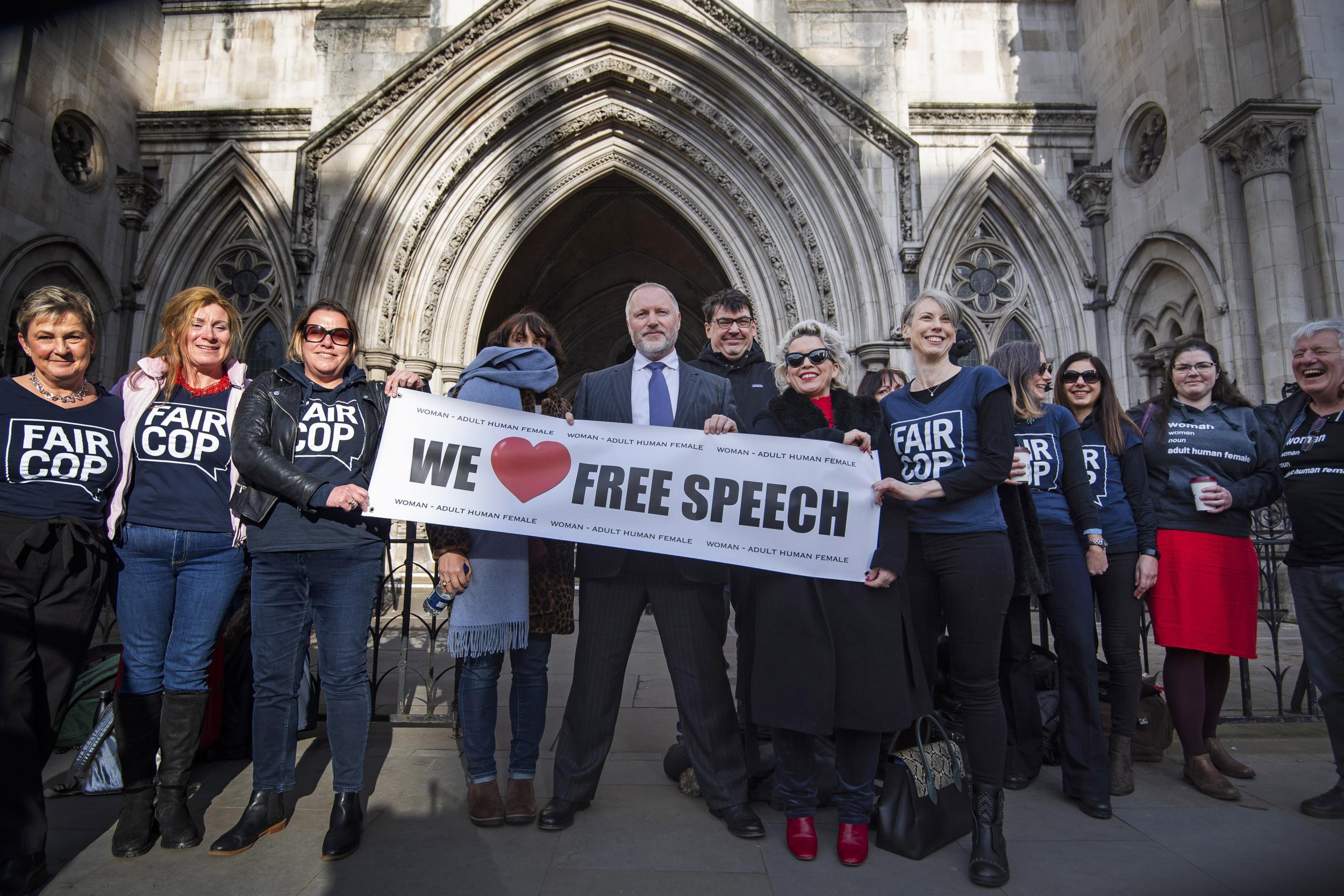
And that was even before the latest unleashing of anti-trans sentiment, kicked off by JK Rowling’s coming-out as a fully-fledged “person with concerns” last week. Does it matter that both her initial comments, as well as her follow-up apologia were a miscellany of half-truths, inaccuracies and plain old-fashioned scaremongering?
Or that the mainstream media piled in on the back of those comments as though they were gospel truth? Treating the utterances of a famous person with 14 million followers as gospel truth and reducing all complexity to a “two sides debate” about “the trans issue”. Because that is all we are: an issue. As opposed to people, with humanity and hopes and fears, like everyone else?
Now, where have I seen minority groups described as an “issue” before... and how well did that end for every single minority so described?
Trans people have been leaving the UK for a long time. Ironically, the very first person to recognise me as trans, over a decade ago, was a young trans woman on her way out, exchanging the UK for her bolthole in France. One too many bricks through her front window, she explained, ruefully.
A close (cis) friend once expressed surprise at how little I reacted to someone attempting to ‘bump’ me with a car in a supermarket car park. I shrugged, realising, as I did so, just how used I had become to public danger
Spain, too, is a popular destination, with those who went there speaking positively of the difference. As Sophie, who left for Spain some five years ago, says: “Spain feels safer … because there seems to be a deep belief in community. So even if someone is anti-trans, you are still part of the community and respected as such. My experience is people are more ‘live and let live’. In the UK, I used to plan my least dangerous route around town if I was going out. I just don’t have that fear now.”
And then, of course, there is New Zealand. Perhaps alarm bells should have been ringing louder back in 2017 when a trans woman was granted asylum in that country because of the persecution she faced in the UK.
Back then, this was seen as an exception. The merest trickle. And while some trans folk were leaving for what they perceived to be safer spaces, so others headed this way, from Africa and South America. That still happens, but as a child to an asylum seeker and refugee – and therefore all too aware of the immense psychic dislocation created by such a move – I was shocked at how many now messaged to say: “Me, too!”
“As soon as the Maltese embassy is functioning again and I can get a solicitor to verify my paperwork, I’m applying for a Maltese passport,” one tells me. Another, a former CEO, is contemplating selling up and moving to Ireland. Not, they tell me, because they want to move, but increasingly because they feel they may have to. A third is ready to join her in-laws in Portugal. Yet another is talking to Citizens Advice: she wants to move to Canada.
I, too, were it not for Brexit, would be reorganising my affairs and on my way to Italy, to Bologna. Failing that I shall look to New Zealand, where my brother relocated some 30 years ago.
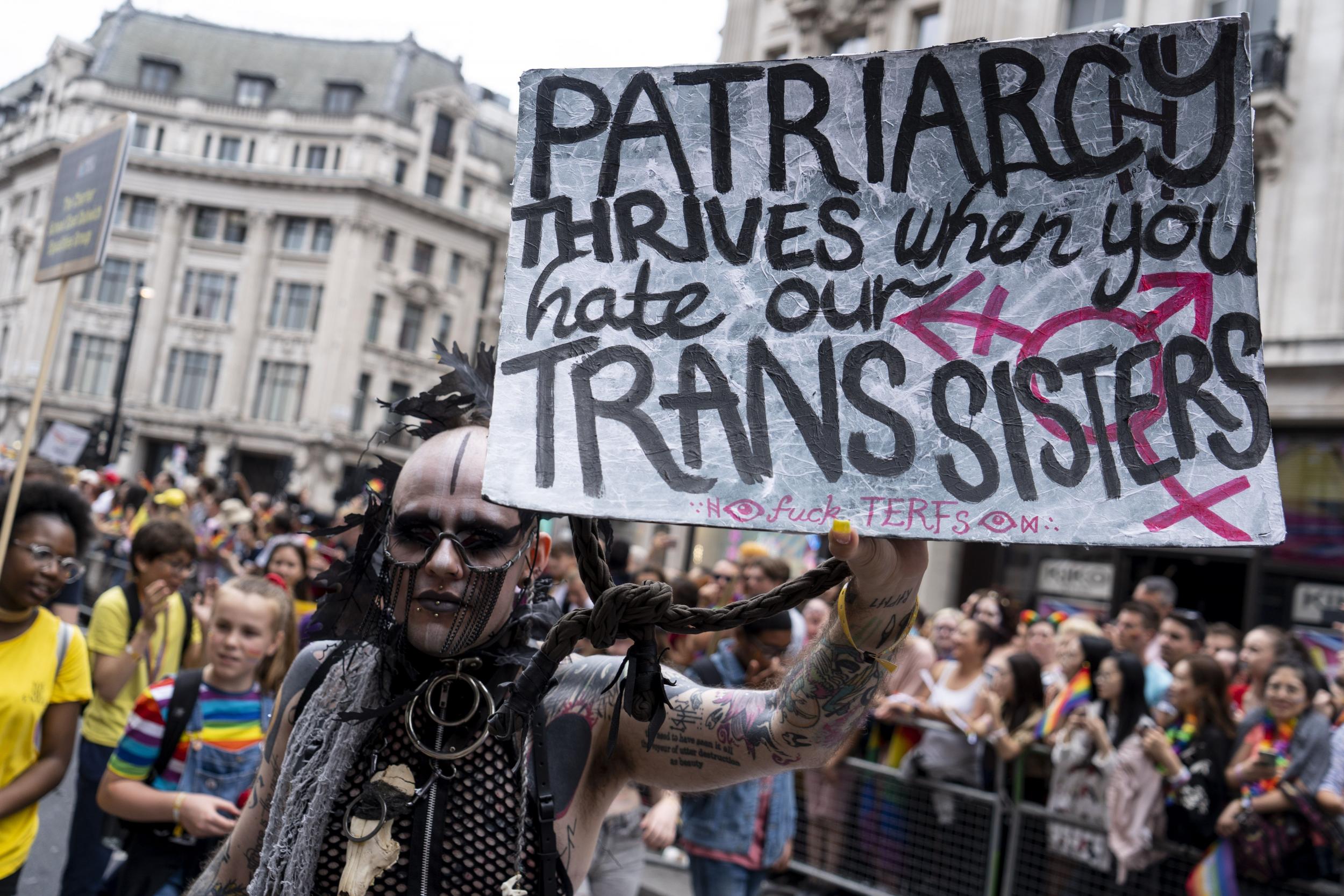
Different people, different motives: broadly similar concerns. You don’t get to transition publicly without learning to roll with the blows. A close (cis) friend once expressed surprise at how little I reacted to someone attempting to “bump” me with a car in a supermarket car park. I shrugged, realising, as I did so, just how used I had become to public danger.
One reason was the sense that such incidents, awful though they were, were the exception. Those contacting me this past week talked about something more. It was not just feeling less safe, or that the streets had become more dangerous. Abuse shouted from the window of a passing car? Sadly commonplace. A trans woman, target of a serious attack three times in the past year, buying herself a stab vest? Not surprising.
That, though, pales into insignificance next to fears, expressed by almost all I spoke with, that government, either through inaction, or misplaced action, might make it nigh on impossible for trans people to function in public spaces at all.
This is in stark contrast to a view gaining ground in many parts of the media, as recently as two years ago, that we had achieved a “trans tipping point” and trans folk were now broadly accepted in UK society. How, in so short a space of time, did we get from there to here?
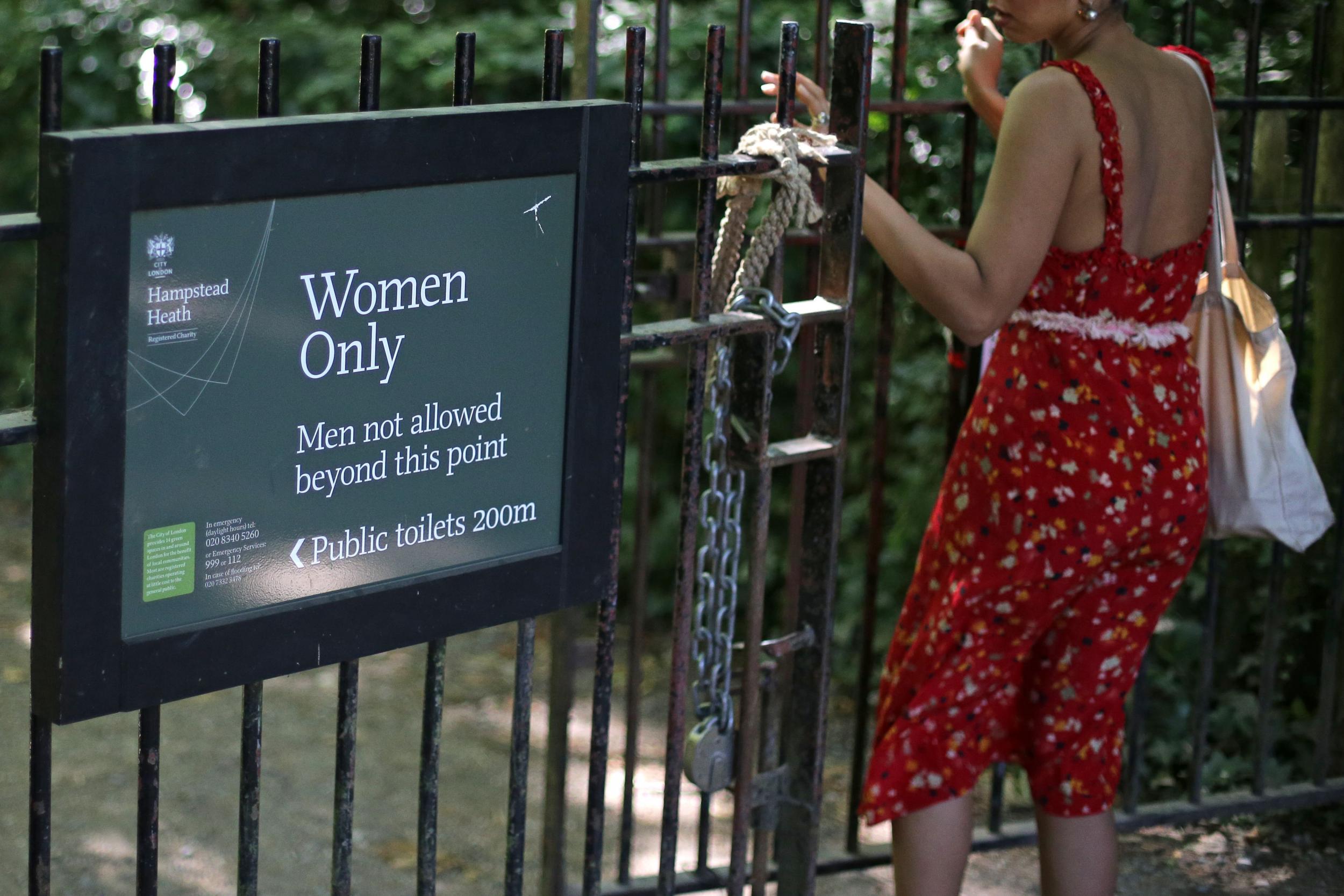
That period has seen a ratcheting up of concerted anti-trans activism in the UK. It started with what seemed at the time – at least to the individual promoting it – no more than a minor bureaucratic adjustment: a proposal to update the law on gender recognition. There were issues with the way in which trans folk obtained gender recognition certificates: it was costly and bureaucratic; ignored the reality of non-binary individuals; and crucially ignored a shift taking place in other countries, to allow gender recognition based on a legal process of self-declaration.
Critics have suggested that this move was a cynical attempt by then prime minister Theresa May to put “clear blue water” between Tories and the DUP, with whom she had just struck a deal. How better to achieve that than introduce a measure that was broadly LGBT-friendly?
The problem is that 2017, when the proposal was tabled, saw the beginning of a long period of chaos in government. The next two years saw three, possibly four, different ministers in charge of equalities – and that was even before the arrival of the latest incumbent, Liz Truss, of whom more later.
Ideologues, like nature, abhor a vacuum and in the months that followed, a variety of “groups” kicked off a plethora of campaigns as dishonest as they were ferocious.
Besides, when was the last time you were asked to present your birth certificate before using a public loo – men’s, women’s or uni’s?
Long before any detailed proposal was tabled, they labelled it all manner of things, including a danger to women and source of “concern”. Note that word, because it was doing a lot of work not just then, but also, in the years and months since. Note, too, the claim by these groups that they “represented women”. That was a pretty big statement to make, given the existence of major established women’s groups working at the sharp end of advocacy and support for women who do not share their views.
But these campaigners had learned well how to make an impact. After all, why designate yourself angry, or apoplectic, of Tonbridge Wells, when a hashtag or a web page or a Twitter address gives you instant televisual creds. I am not going to name individual organisations, because I do not wish to give them the satisfaction of being called out. Besides, I can see my editor having a heart attack should I do so, since one issue is that it is hard to tell, from day to day, which groups are hashtags, which are limited companies and which – if any – have achieved the gold star of charity status.
One feature of these groups is their dedication to litigation, which they pursue with fierceness and with the benefit of a war chest approaching £400,000, raised variously from individuals and potentially through some very dodgy input from US religious groups.
If you want to understand better, head out to Twitter, follow a few major trans commentators, and you will quickly get the idea.
To begin, the attacks were confined to proposals to amend the Gender Recognition Act: or rather, to a fictive version of same. “Allow self-identification,” the rhetoric went, “and every sex offender in the land will be signing up to be a woman tomorrow, demanding instant access to women’s most intimate spaces.”
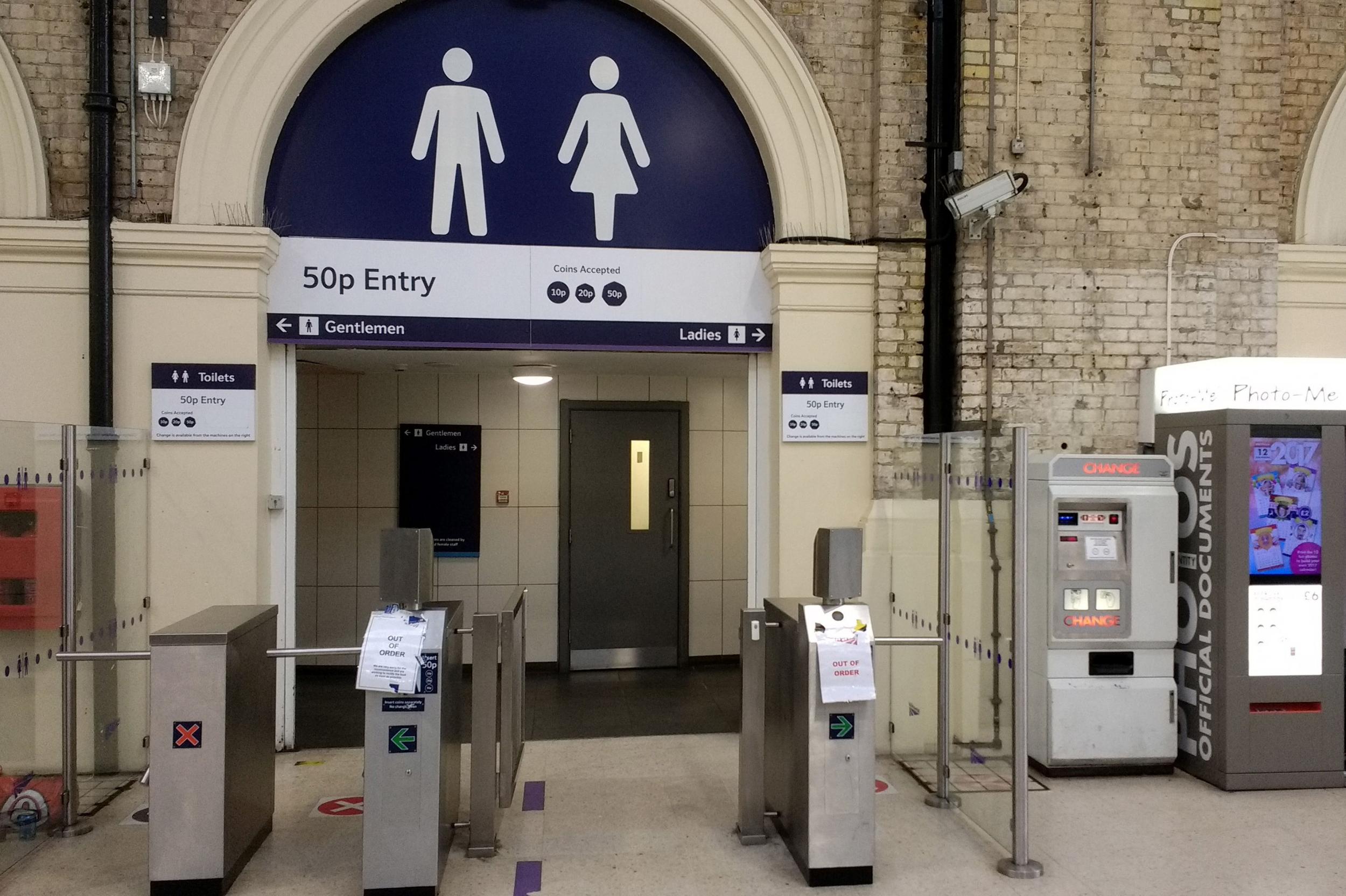
This was rhetorical nonsense: I wrote as much at the time. There was no evidence of this happening in any country that had put in place far less strict measures than those being proposed for the UK. Why, after all, would abusive men undergo a legal process with possible penalties for false declaration when they could as easily slip on a yellow Day-Glo jacket and invade women’s spaces disguised as a cleaner?
Worse: it was not even correct in law, as a letter from groupuscule Authentic Equity Alliance reveals. Writing to the EHRC in February 2020, they acknowledge “possession of a GRC does not automatically override the 2010 Equality Act”. So even if you are some devious deviant seeking a gender recognition certificate for nefarious purposes, that does you no good at all. Which, come to think of it, is merest common sense.
Besides, when was the last time you were asked to present your birth certificate before using a public loo – men’s, women’s or uni’s?
Still, it cut through. Because dozens of women claiming how much they sympathised with trans people but were really just “concerned” (that word again!) at how men might exploit “trans rights” was an easy sensation for the press to piggyback on.
So it began. At first, the attacks were restrained. As time went by, though, the mask slipped and all too many of those speaking for these groups descended into outright bile directed at trans people in general and trans women in particular. Again, “Twitter is your friend”: also, though I use the word advisedly, “mumsnet”. Don’t take my word for it; just go read almost any forum where the anti-trans dominate and it is clear that here is zero respect for trans people, and an outright demand to make life for trans women so unsafe they are no longer capable of living within society.
There is almost no aspect of trans life on which one or more of these groups now do not ‘have views’, almost without exception at odds with those of trans people. It is obsessive, exhausting
The “toilet issue” might seem like the punchline to a bad politically correct joke. But it is no joke if deliberate policy is to prevent you and your community having access to such facilities. I allowed myself a wry smile a week or so back when people expressed concerns at how the country, opening up post-lockdown, could cope if councils did not also reopen public loos. Because, of course, this is only a problem when it is non-trans people affected.
The attitude to trans people in general, as well as to “debate”, which it is claimed is the only way these people can assuage their concerns, was summed up by a Channel 4 event at which self-styled gender criticals drowned out every attempt to speak by trans woman Munroe Bergdorf with shouts of “Penis! Penis!”
Ah yes: one of the myths peddled now is that if you are in a loo with a trans woman they are “more likely than not to have a penis”. This is nonsense and a misreading, deliberate or accidental, of stats about trans people. Because there could well be 2 million trans people in the wider UK: but the vast majority of those are non-binary, non-transitioning, or otherwise not out. The only people using what the anti-trans like to term “women’s spaces” will pretty exclusively be drawn from the rather less numerous cohort of trans women in the UK: perhaps 25,000 at most, of which 70 per cent or more are fully transitioned.
But it is soundbite and dead cat rolled into one, which makes debunking the nonsense almost impossible. It is easy to make alarmist claims, as this, or the claim that 40 per cent of trans prisoners are sex offenders. It takes but a one-line statement. Whereas rebutting, demonstrating with hard stats that the actual figures are very, very different, takes time and energy, even assuming the public are prepared to listen.
That would not be an issue if the press were doing their job. Except they are not. Research carried out at the University of Lancaster reveals that articles on trans folk increased three to four-fold between 2012 and 2019. Many carried negative content about trans people. Many, too were keen to dismiss the very idea of transphobia. In work carried out for Trans Media Watch last year, I found one national paper carried a clear majority of articles hostile to trans people. Of these, 75 per cent included the views of anti-trans commentators. Against this, 50 per cent carried pro-trans views. Yet, of those pro-trans comments, just one in 10 came from actual trans people.
And the number of issues on which those merely “concerned” about one small technical amendment to the law has grown exponentially. Trans people in prisons, in sports, in schools, in changing rooms, in loos: all places where policy has been mostly set with few issues over the past few years is in their sights. So, too, access to medication and surgery. Also internationally recognised medical practices around young people seeking support.
There is almost no aspect of trans life on which one or more of these groups now do not “have views”, almost without exception at odds with those of trans people. It is obsessive, exhausting, and, dare I say it, transphobic: though that too is vehemently denied by those expressing such views.
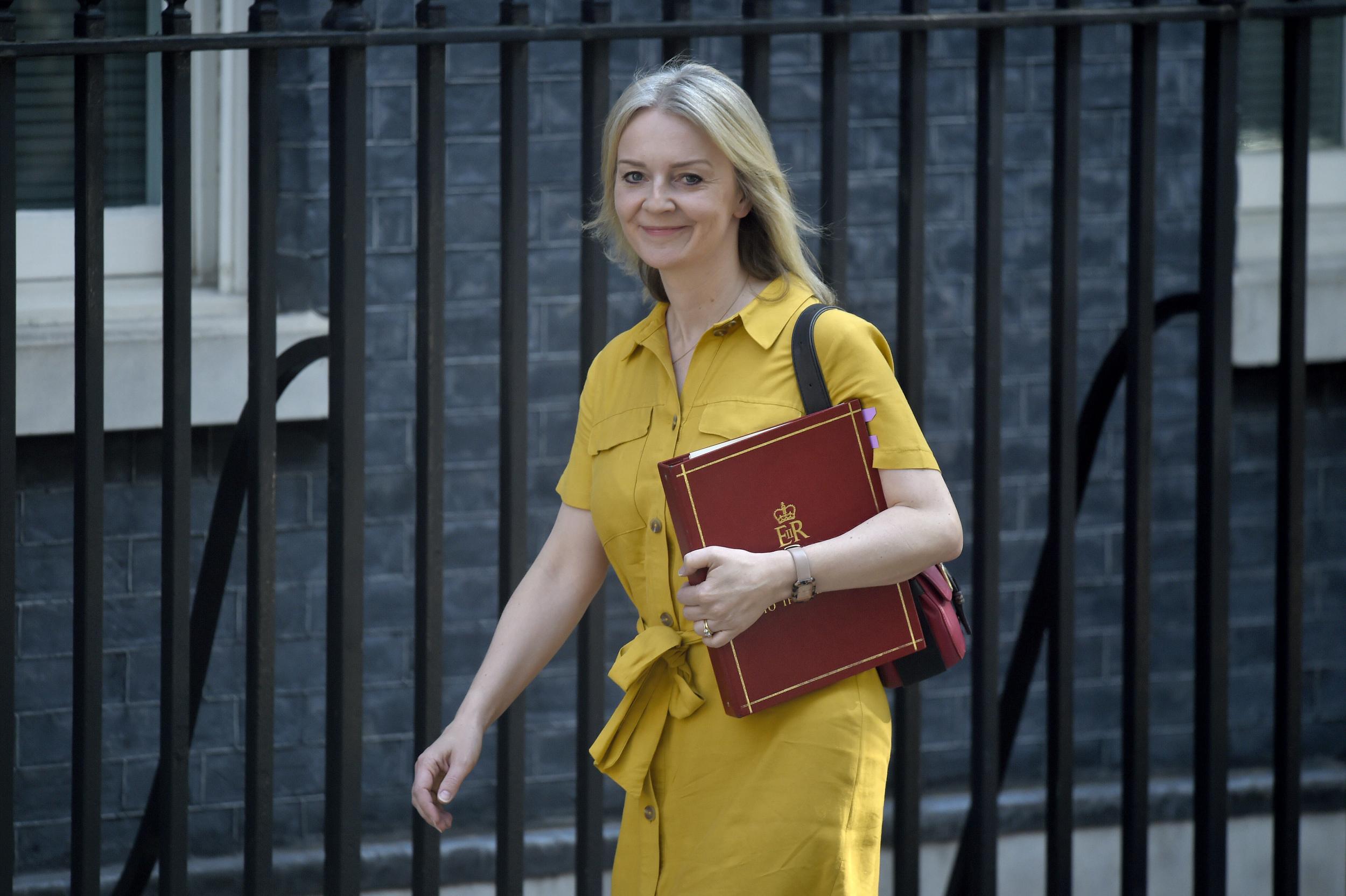
Apparently, going out into local communities and winding up taxi drivers and bike gangs that “little girls” need protecting from trans folk is not in any way inciting violence.
To be fair, for all the froth generated by these folks, there are grounds for ignoring them: for treating them as the anti-feminist irrelevance they mostly are. For make no mistake, their tactic of taking on high profile cases has achieved little, beyond showing them up for the danger they pose not just to trans people, but to the wider rights of LGBT+ people and women. Because the precedents they seek to establish, to “put trans back in its box” – scaling back hate crime and safeguarding, undermining the Gillick principle, or reopening the Equality Act – will not apply just to trans folk. That is why Christian and far-right groups are so keen to support them.
Of greater concern are two trends. The first, and a worrying continuation of this litigation, is the fact that a number of councils are now removing trans-positive guidance from their books. Not because it is wrong or they disagree with it. But because, in a time of pandemic and when every resource they still possess must be focused on fighting the virus, they simply cannot afford to defend.
Today it is schools, and the advice to teachers is to continue to use advice published by major teaching unions such as the NEU. But the fear is that without strong support for the trans community from central government, other legal challenges will follow, perhaps also be lost by default.
When, however, it comes to support from the centre, there is the slight problem of the current “equalities” minister Liz Truss. She has gone out of her way to talk about the “dangers” of allowing young trans people access to medical treatment. She has also spoken of “safe spaces for women” in language that directly echoes the trans-exclusionary rhetoric of these same groups.
By her words and perhaps, in the months to come, her actions, she appears not so much concerned with equalities across a range of characteristics, but with a narrow definition of equality for a very small, right-leaning segment of middle-class privileged women.
And that is a genuine concern. For as one of those who spoke to me says: “After Truss, it is just not going to be safe here.”
Perhaps it is all passing storm: perhaps Truss will not last long in post. After all, no one else has, lately.
But if she stays, and if rhetoric does turn to action - if the Tory party reverts to its longer-term status as “nasty party” in respect of LGBT+ people - who can blame trans people for seeking safety elsewhere. We have seen what is happening in Trump’s America. Seen, too, how quickly rights can be stripped away in places like Hungary or Brazil. And we know that without state protection, the violence that some would like to direct our way will swiftly escalate.
I do not wish to leave the UK. I am not going any time soon.
But if the UK lurches further right, descending further into desperate populism, the time may yet come when, like my father before me, I can no longer live safely in the country where I was born.
Join our commenting forum
Join thought-provoking conversations, follow other Independent readers and see their replies
Comments